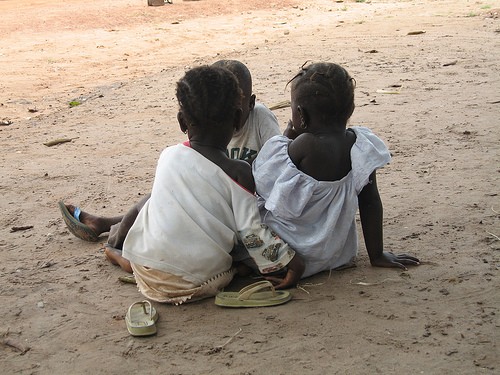 A friend of mine’s daughter went to Africa. She had to end her trip early, fly to the US, and be hospitalized for malaria. She was a lucky American child who could get medical care for this disease that affects 350–500 million people worldwide each year. Her life was never threatened.
A friend of mine’s daughter went to Africa. She had to end her trip early, fly to the US, and be hospitalized for malaria. She was a lucky American child who could get medical care for this disease that affects 350–500 million people worldwide each year. Her life was never threatened.
[social_buttons]
New research suggests a simple, natural solution can save the lives of children suffering from hypoglycemia caused by malaria: a spoonful of sugar.
No, it’s not because a spoonful of sugar helps the medicine go down, but it is because the sugar relieves life threatening symptoms. According to the Agence France-Presse:
The rapid drop in blood sugar that frequently accompanies severe malaria kills many children in remote parts of Africa before they can reach a clinic for an intravenous dose of glucose, the proven treatment for hypoglycaemia.
Hubert Barennes, a French doctor who worked with public health services in several sub-Saharan countries from 1987 through 2002, saw the devastating affect of sudden sugar loss nearly every day.
He reasoned that a bit of the sweet stuff taken orally might at least help relieve the life-threatening symptoms.
It’s really quite amazing no one had thought of this before, especially considering the statistics on malaria as reported by the CDC:
- Forty-one percent of the world’s population live in areas where malaria is transmitted (e.g., parts of Africa, Asia, the Middle East, Central and South America, Hispaniola, and Oceania).
- Each year 350–500 million cases of malaria occur worldwide, and over one million people die, most of them young children in sub-Saharan Africa.
- In areas of Africa with high malaria transmission, an estimated 990,000 people died of malaria in 1995 – over 2700 deaths per day, or 2 deaths per minute.
- In 2002, malaria was the fourth cause of death in children in developing countries, after perinatal conditions (conditions occurring around the time of birth), lower respiratory infections (pneumonias), and diarrheal diseases. Malaria caused 10.7% of all children’s deaths in developing countries.
- In Malawi in 2001, malaria accounted for 22% of all hospital admissions, 26% of all outpatient visits, and 28% of all hospital deaths. Not all people go to hospitals when sick or having a baby, and many die at home. Thus the true numbers of death and disease caused by malaria are likely much higher.
23 West African children were studied by Dr. Barennes. All of the children had severe malaria coupled with low blood glucose concentrations.
One was given the standard therapy of intravenous glucose, and the other received a bit of moistened sugar under the tongue every 20 minutes.
The results were unambiguous — the sugar doses worked just as well as the IV treatment, despite several cases in which children swallowed the sugar rather than letting it dissolve slowly under the tongue, thus reducing its effectiveness.
If I ever travel to Africa, I will have to remember to take some sugar with me (as well as a mosquito net).
Image: 300td.org on Flickr under a Creative Commons License
[…] from hypoglycemia caused by malaria, a researcher who conducted clinical trials here said. A Spoonful of Sugar Could Save Children’s Lives Eco Child’s Play A spoonful of sugar can help fight Malaria The Island (subscription) all 3 news […]